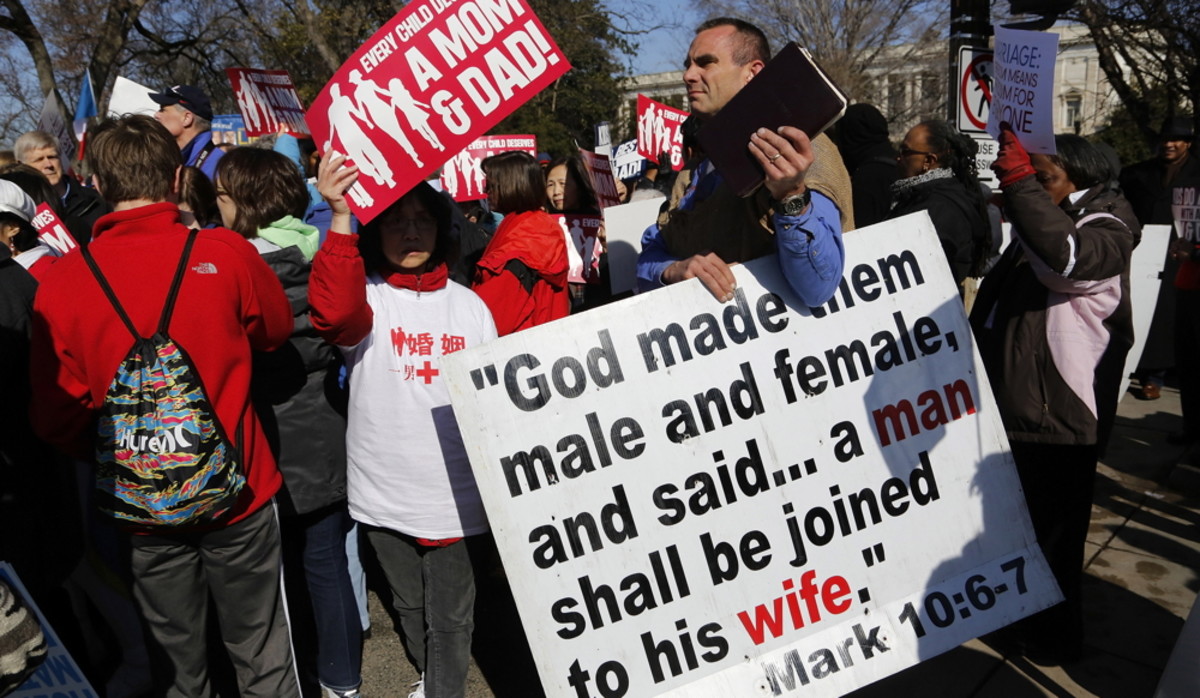Respecting an Employee's Religious Beliefs in the Workplace

Employers must respect laws that protect an employee's religious beliefs as they pertain to what happens in the workplace. As the melting pot of the modern world, the United States was founded on many freedoms to include the freedom to worship as one chooses. As history has shaped and molded the American lifestyle, the workplace has had to go through some alterations to make certain an employee's religious freedom are respected. Harassment and discrimination based on an employee's religious beliefs or religious affiliation is prohibited by Title VII of the Civil Right Act of 1964. And with both men and women working outside the home for more than forty hours per week, it becomes imperative that religious accommodations are made whenever reasonably possible.
Respect for All
Title VII of the Civil Rights Act of 1964 requires protections at work for race, color, national origin, gender and religion. When one thinks of Title VII, religion is one of those protected classes which does not always come to mind as much as the other aspects of this important law. Religion, as a topic of discussion, is a very sensitive and private matter. Like politics, it is a subject that many employees avoid discussing at the workplace. In addition, religion is a very private and personal matter to many. Employees may choose to keep their spirituality to themselves much like other personal matters.
However, employers must make every effort to accommodate an employee's desire to worship or observe their religious beliefs when there is a request to do so. The courts recognize the important role religion plays in the lives of individuals and want employers to respect their right to observe their beliefs. Employees often make requests during religious holidays for time off to attend religious services and functions. Applicants during an interview may declare that they cannot work on Sunday mornings because of church service they attend. If making the accommodation in these examples would not create an undue hardship on the conduct of business, employers are expected to make religious accommodations in the workplace. There are several ways an employer can make such accommodations:
- flexibility in work schedules to include how employees take work breaks, lunches, earlier start times, etc.
- taking floating holidays
- allowing employees to swap work shifts with one another
- modification of work assignments and work practices
- allowing specific grooming and dress standards
While there is a finite number of ways to make reasonable accommodations, it is most important that the employee understand that he/she is responsible for making a request for a religious accommodation to the employer. The employer must then attempt to make an accommodation that will reasonably accommodate that employee's request to observe their religious belief. If the employer's accommodation does provide an accommodation and does not provide any disadvantage for the employee in terms and conditions of employment, the employee then has the choice to accept the accommodation. There is no requirement of the employer to provide the accommodation that the employee prefers, if the employer's offer truly provided the needed religious accommodation. In addition, if the employer can prove that providing such an accommodation would cause undue hardship on the employer's ability to conduct its business, the employer is not required to provide such accommodation.
Business Decisions for Business Reasons
Like all protections of Title VII of the Civil Rights Act of 1964, employees and applicants must not be mistreated or harassed in the workplace due to their religious beliefs. Employers must make business decisions for business reasons. Not selecting an applicant or refusing to promote an employee due to their religion is discrimination, pure and simple. Verbal attacks or taunting based on religion is a form of workplace harassment that is discriminatory in this country. Title VII provisions require an employer to be conscientious of this protection and make every effort to make accommodation when requested by the employee.
Closing Thoughts for Employers
Equal employment opportunity is the law in this country. Employers should not ask applicants about their religious beliefs during a job interview. Title VII of the Civil Rights Act of 1964 prohibits discrimination based on religion in employment decisions. Whether it is to hire, discipline, promote or discharge, managers must make business decisions for business reasons. Furthermore, employers must take reasonable steps to accommodate the religious practices of applicants and employees. The law requires that employers reasonably accommodate the religious observances or practices of their employees and applicants. Employers who choose not to accommodate must be able to show that doing so would cause undue hardship on the organization. The purpose of Title VII is to protect employees from having to work in a religiously hostile work environment. Like other discrimination in the workplace, employers will be held accountable when these rights are violated.


If you have questions regarding employee/employer religious rights in the workplace, contact the Equal Employment Opportunity Commission.
- US EEOC Home Page
US EEOC Home Page






